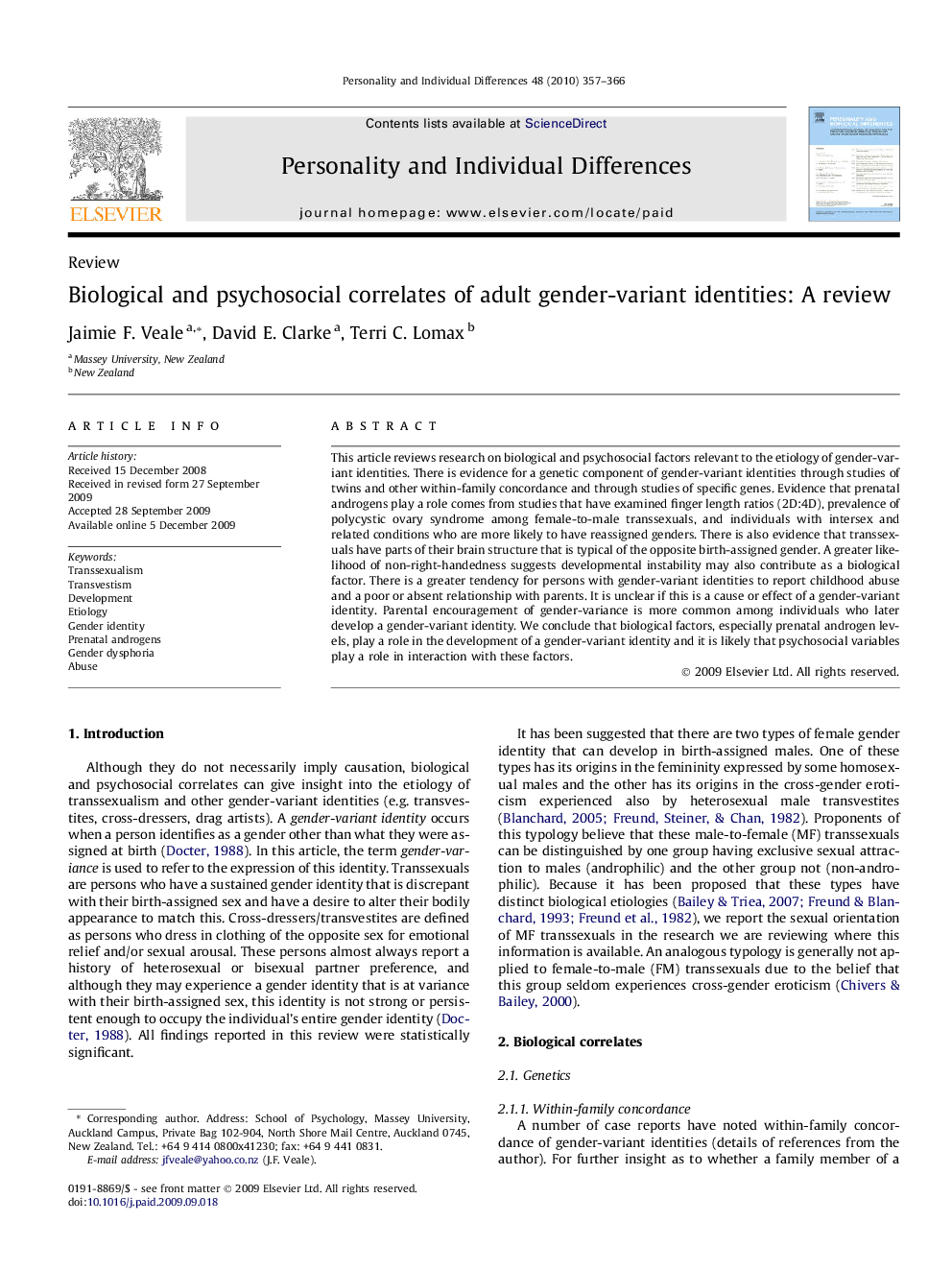| Article ID | Journal | Published Year | Pages | File Type |
|---|---|---|---|---|
| 892141 | Personality and Individual Differences | 2010 | 10 Pages |
This article reviews research on biological and psychosocial factors relevant to the etiology of gender-variant identities. There is evidence for a genetic component of gender-variant identities through studies of twins and other within-family concordance and through studies of specific genes. Evidence that prenatal androgens play a role comes from studies that have examined finger length ratios (2D:4D), prevalence of polycystic ovary syndrome among female-to-male transsexuals, and individuals with intersex and related conditions who are more likely to have reassigned genders. There is also evidence that transsexuals have parts of their brain structure that is typical of the opposite birth-assigned gender. A greater likelihood of non-right-handedness suggests developmental instability may also contribute as a biological factor. There is a greater tendency for persons with gender-variant identities to report childhood abuse and a poor or absent relationship with parents. It is unclear if this is a cause or effect of a gender-variant identity. Parental encouragement of gender-variance is more common among individuals who later develop a gender-variant identity. We conclude that biological factors, especially prenatal androgen levels, play a role in the development of a gender-variant identity and it is likely that psychosocial variables play a role in interaction with these factors.
